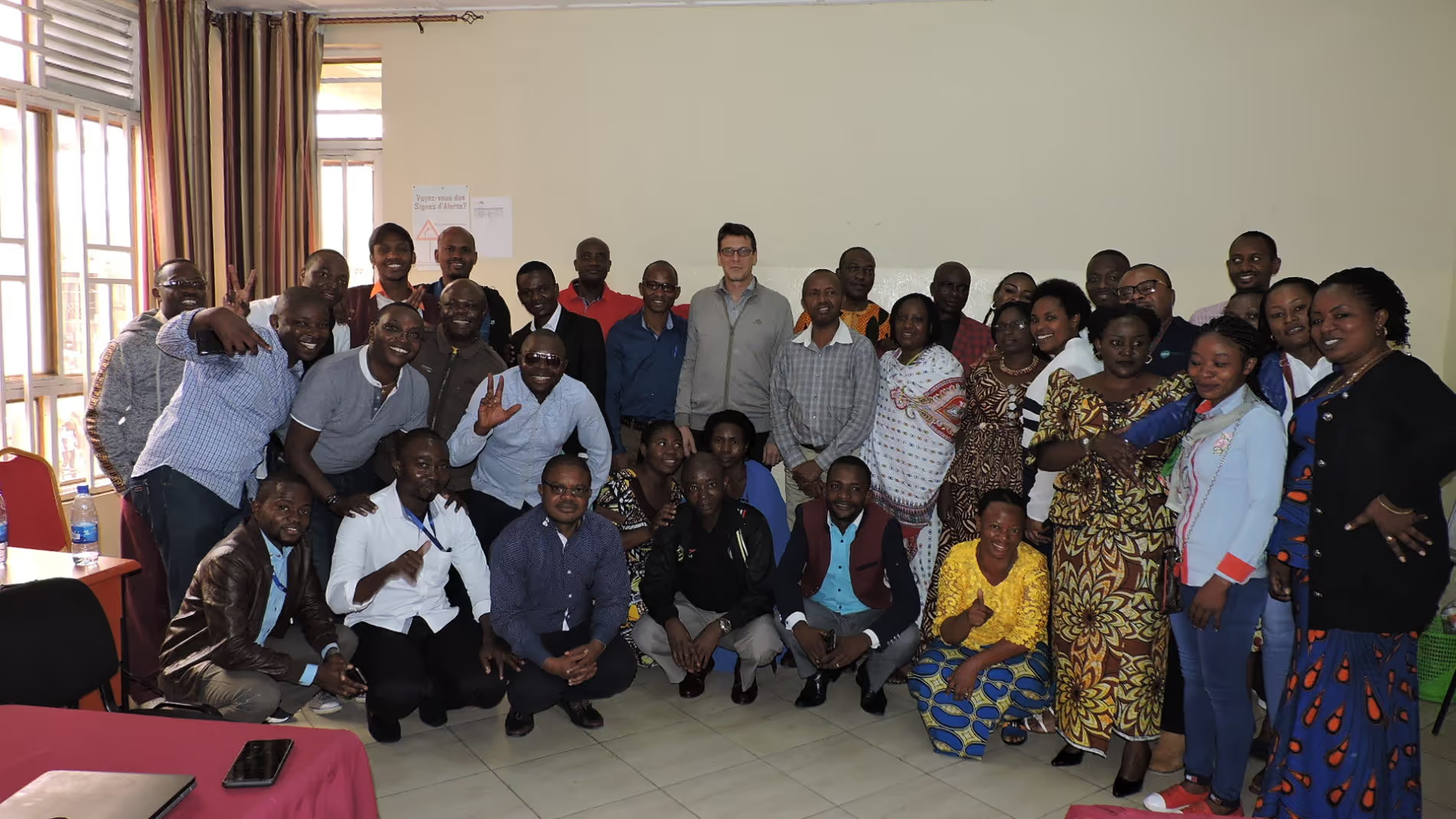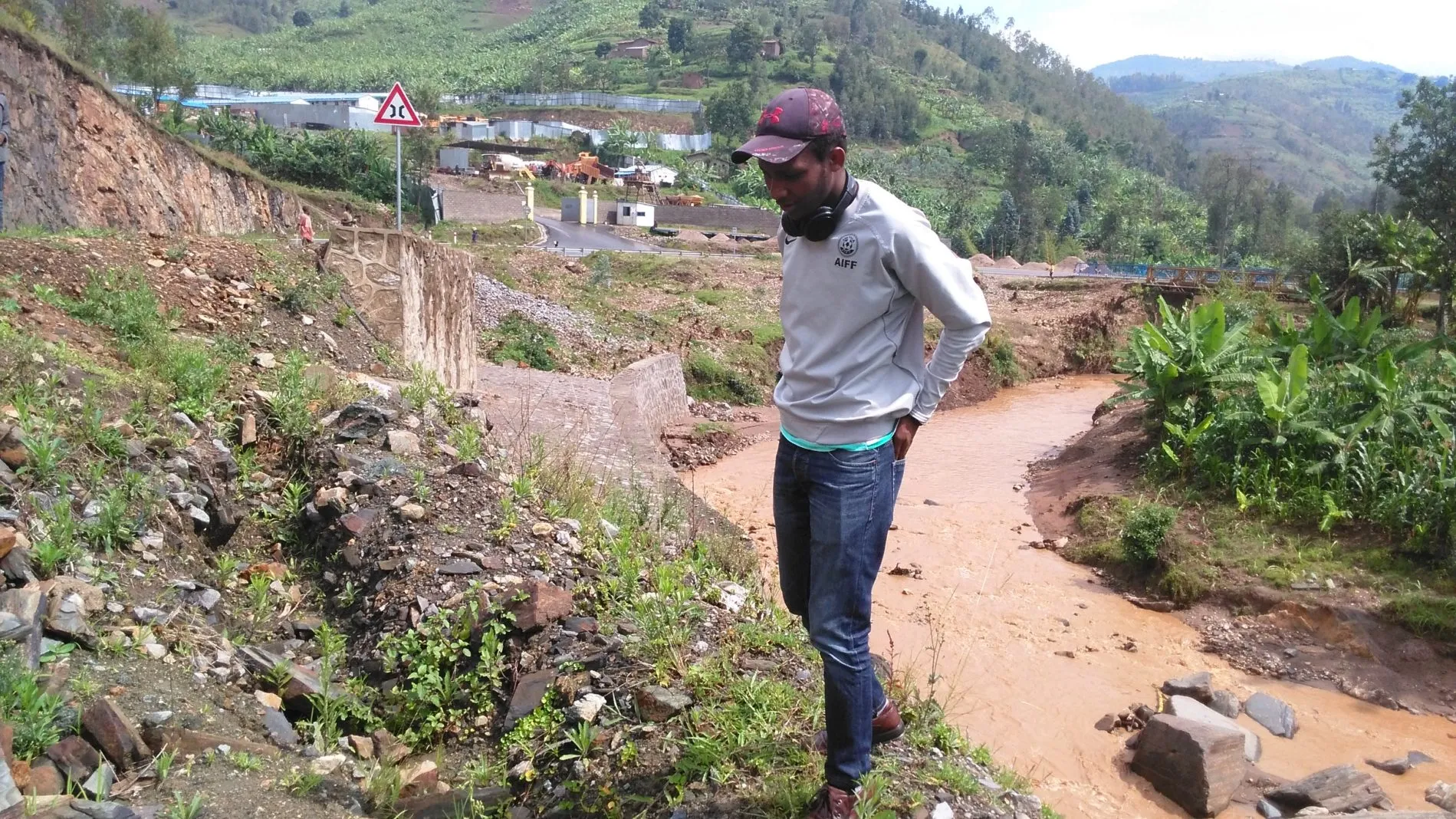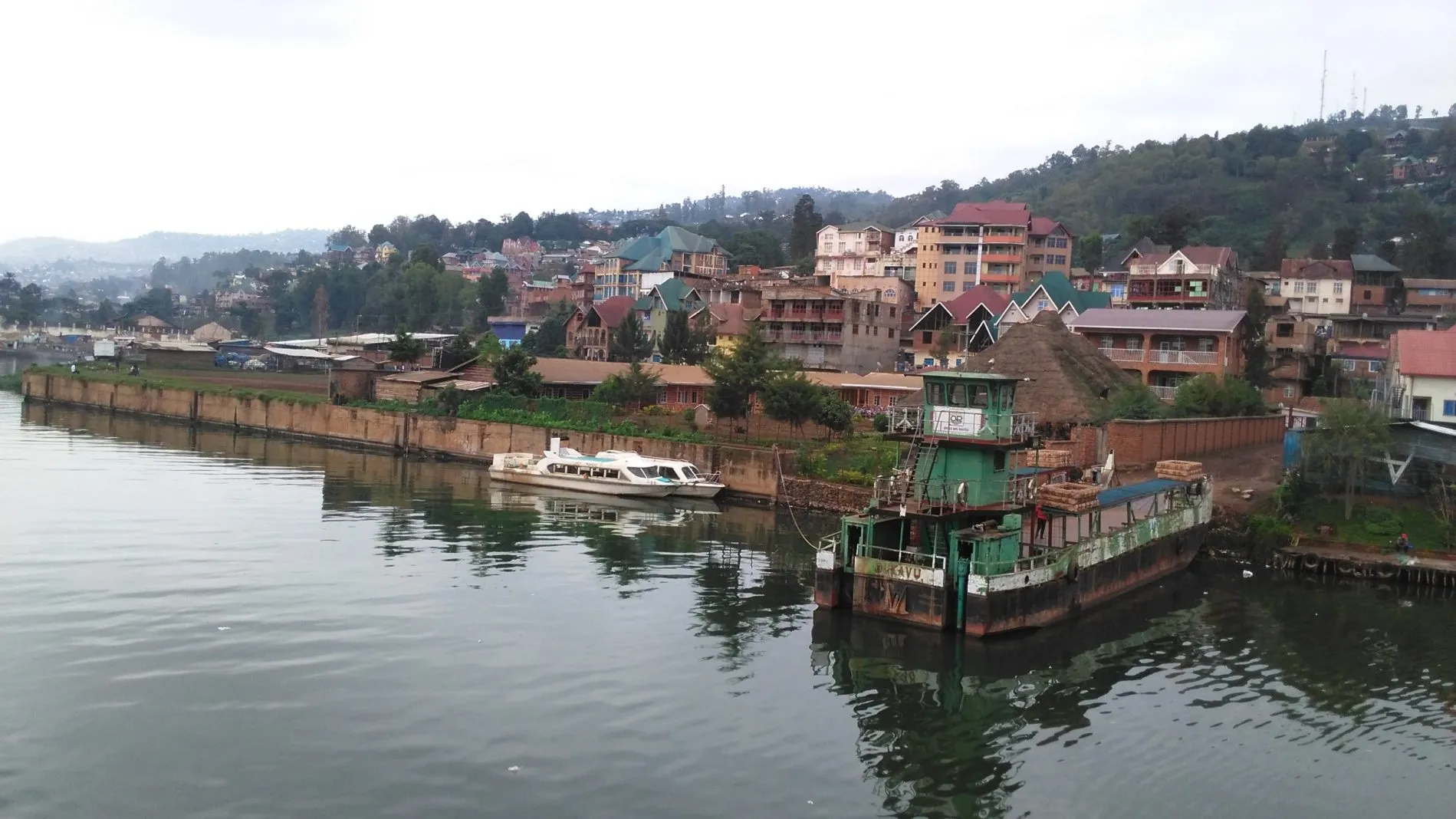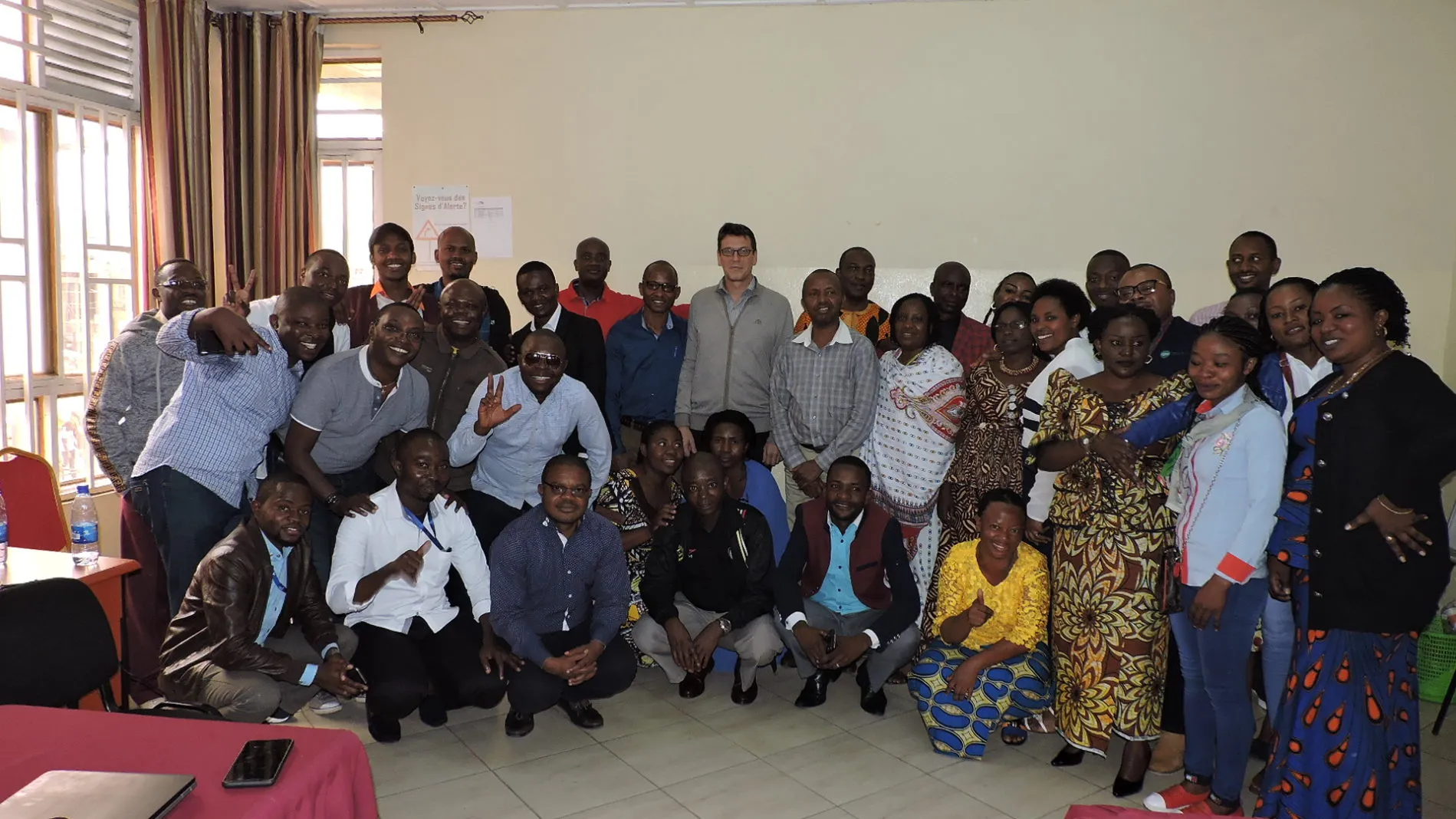And here we go, let’s start with the beginning

My name is Mihigo Bonaventure, research assistant with the Living Peace study. I was born in the Democratic Republic of the Congo (DRC) but grew up as a young boy in rural Rwanda. The DRC faces many issues as a consequence of decades of violence, epidemic outbreaks and insecurity. The Living Peace intervention aims to reduce Sexual Gender Based Violence (SGBV) in both North and South of Kivu of DRC.
Living Peace Institute (LPI) is a non-for-profit organization dedicated to the promotion of equality between men and women and the prevention of the gender-based violence. LPI is actively involved in the restoration of peace and gender promotion among couples, in the households and in the conflict-affected society at large. LPI works in Kinshasa, the capital city and in both North and South Kivu provinces.
In this series of blogs, I will be sharing with you some of the experiences of collecting data in the region and the fascinating community members we meet during the research. For a month and a half, we traveled across the whole of South and North Kivu provinces during the data collection activities. Our main transport was by motorbike with at least 2 people riding (boba boda) which enabled us to travel on the long and muddy roads in the region.

We have many personal experiences from collecting data which we wish to share including the difficult travelling conditions such as the cold weather we experienced and muddy conditions along the way. We would also like to share the strong collaboration between the data collectors and the participants through this study.
The Living Peace Intervention (LPint) targets the SGBV men perpetrators. LPI believes that by promoting 'positive masculinity', men will be less violence allowing their families as well as communities to live together peacefully. The positive masculinity approach involves group therapy sessions with men from civilian populations, police, army and ex-army. Participants have enrolled since it’s started in 2015.

The research intervention is expected to run in two phases, one for quantitative part where in three rounds (Baseline, Endline 1 and Endline 2) over 3,600 participants (half male and half female) will be interviewed about their relationships with their families and community in general. Two of the three phases have been completed over the past 14 months since the study started.
We will also conduct qualitative research with focus discussions and individuals randomly selected among the 3,600 participants. The in-depth interviews will help us contextualize the findings from the quantitative questionnaires. The research is based on a Cluster Randomized Controlled Trial (CRCT) approach where one group of participants will be exposed to the LPint intervention, and another one will not. In order to help measure the LPint intervention over time.

Through working with the research staff, I have been impressed by the communication between the data collectors and LPint supervisors. The data collectors have shared recommendations and comments with the supervisors who have provide good feedback. It was interesting to see the data generated from the different feedback and evaluation sessions completed along side the data collection.
I have personally learned for the data collection to be close to your team, to be flexible and to be a result-orientated person. That’s what I have noticed in the team and the results as well as friendship was always following.
Stay updated
Sign up for our newsletter to receive regular updates on resources, news, and insights like this. Don’t miss out on important information that can help you stay informed and engaged.
Related articles


.png)
Explore Elrha
Learn more about our mission, the organisations we support, and the resources we provide to drive research and innovation in humanitarian response.